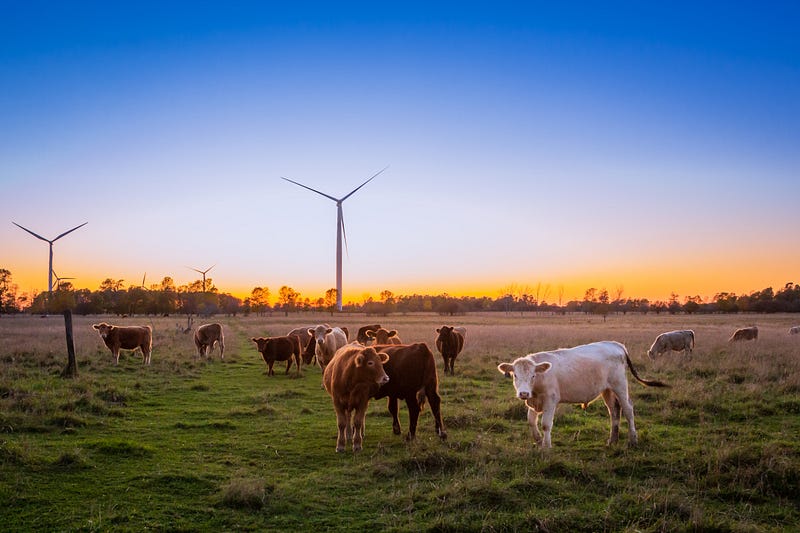
Endangered areas and animals face numerous threats, including habitat loss, poaching, and unsustainable practices. To address these challenges, it is crucial to engage and involve local communities in conservation efforts. Developing alternative economies that provide sustainable livelihood options can offer incentives for communities to actively participate in conservation, creating a win-win situation for both people and the environment.
The Importance of Alternative Economies
Traditional livelihoods in areas with endangered species or ecosystems may contribute to their degradation. By providing alternative economic opportunities, local communities can reduce their dependence on activities that harm the environment, such as logging or hunting. Alternative economies offer sustainable alternatives that promote the long-term well-being of both people and nature.
Raising Tropical Fish: A Viable Alternative
One example of an alternative economy is the sustainable raising of tropical fish. Many endangered areas are home to unique and colorful fish species that are highly sought after in the aquarium trade. By promoting responsible fish farming practices, local communities can generate income while minimizing the impact on natural ecosystems. This approach provides a sustainable alternative to wild-caught fish trade and helps protect both endangered fish species and their habitats.
Ecotourism: Balancing Conservation and Local Livelihoods
Ecotourism is another alternative economy that has shown great potential in conserving endangered areas and animals. By attracting visitors who are interested in experiencing nature responsibly, local communities can benefit economically while safeguarding their natural resources. Ecotourism initiatives can create employment opportunities, support local businesses, and raise awareness about conservation. When properly managed, ecotourism can contribute to the protection of endangered species and habitats by providing financial incentives for their preservation.
Empowering Local Communities
The success of alternative economies in conservation relies on empowering local communities to actively participate in decision-making processes and benefit directly from conservation efforts. This can be achieved through capacity-building programs, training in sustainable practices, and the establishment of community-owned enterprises. By involving local people in conservation initiatives, they become stakeholders with a vested interest in protecting their natural resources and the endangered species that depend on them.
Addressing Challenges and Considerations
While alternative economies have the potential to make a positive impact, there are challenges and considerations that need to be addressed. Care must be taken to ensure that these alternative activities are truly sustainable and do not inadvertently harm the environment or exacerbate other conservation issues. Proper planning, monitoring, and regulation are essential to prevent overexploitation or ecological damage. Additionally, alternative economies should be developed in a way that respects local cultures, traditions, and rights, ensuring that communities are active participants and beneficiaries of conservation efforts.
Conclusion
Developing alternative economies in local communities is a promising approach to conserve endangered areas and animals. By providing sustainable livelihood options such as raising tropical fish or promoting ecotourism, these alternative economies not only alleviate poverty and improve the well-being of local people but also contribute to the conservation of ecosystems and endangered species. It is through the empowerment of local communities, careful planning, and sustainable practices that we can achieve a harmonious balance between human development and the protection of our natural heritage.
Frequently Asked Questions (FAQs)
FAQ 1: What are alternative economies?
Alternative economies refer to sustainable livelihood options that provide alternatives to traditional activities that may harm the environment. They aim to support local communities while promoting conservation and the protection of endangered areas and animals.
FAQ 2: How does raising tropical fish help conservation efforts?
Raising tropical fish through sustainable fish farming practices offers an alternative to the wild-caught fish trade. It reduces pressure on natural ecosystems and helps protect endangered fish species and their habitats.
FAQ 3: What are the benefits of ecotourism for conservation?
Ecotourism contributes to conservation by generating economic benefits for local communities while promoting responsible tourism practices. It provides financial incentives for the protection of endangered areas and animals and raises awareness about their value.
FAQ 4: How can local communities be empowered in conservation efforts?
Local communities can be empowered in conservation efforts through capacity-building programs, training in sustainable practices, and the establishment of community-owned enterprises. By involving them in decision-making processes and ensuring direct benefits, they become active stakeholders in conservation.
FAQ 5: Are there any risks associated with alternative economies?
While alternative economies have benefits, there are risks to consider. Care must be taken to ensure that these activities are truly sustainable and do not harm the environment or local cultures. Proper planning, monitoring, and regulation are essential to address these risks and maximize the positive impact of alternative economies on conservation.

No comments:
Post a Comment